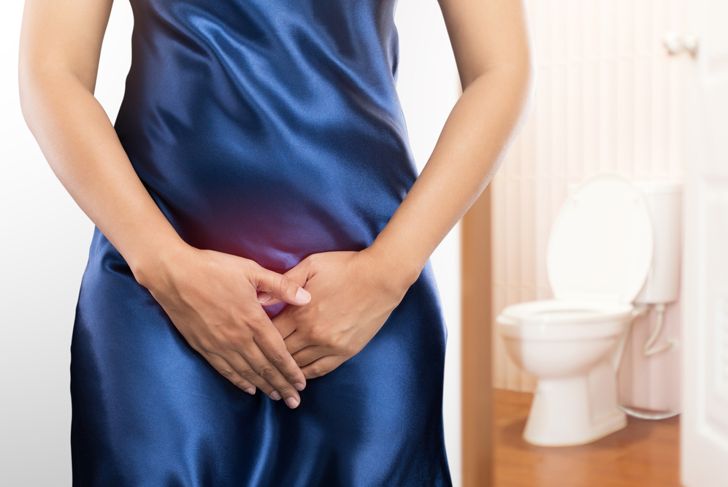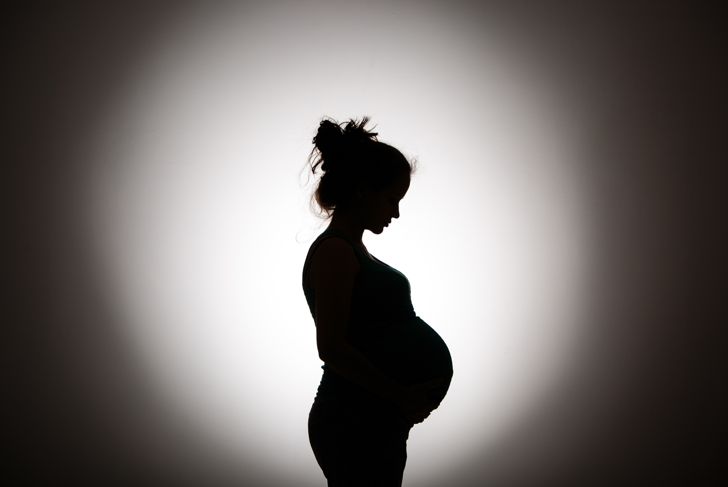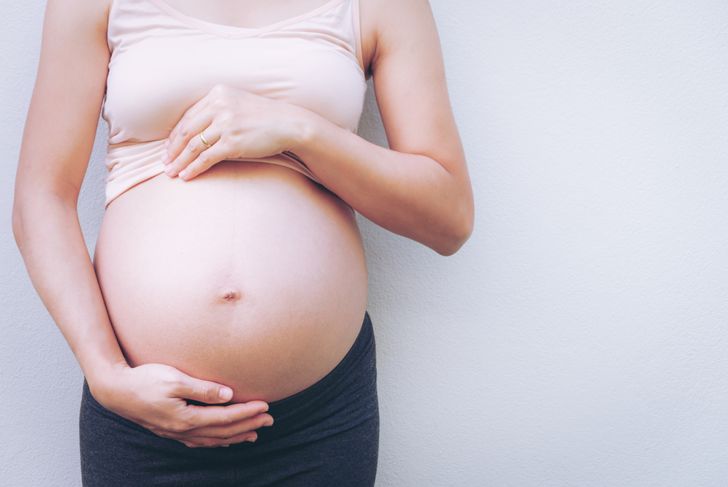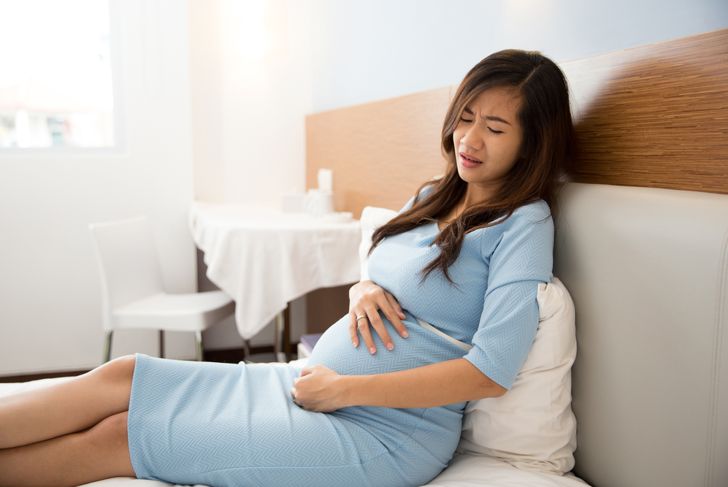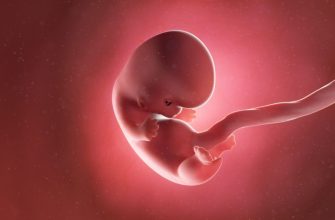Pregnancy is an exciting time, but one which is often accompanied by uncertainty and fear. Some symptoms, like nausea and fatigue, are expected during pregnancy— and are even indications of a healthy pregnancy. Other symptoms— like vaginal bleeding— are less common. Sometimes, bleeding during pregnancy can be insignificant— meaning that it is not an indication of harm to you or your baby. This type of bleeding most often occurs in the first trimester of pregnancy. Other times, however, it is a sign that there is something more serious going on. Bleeding during pregnancy is not a typical symptom, and should therefore always be checked. Whether you are experiencing light spotting or heavy bleeding, visit a doctor if you see blood during pregnancy. These are some of the most common reasons a woman may experience bleeding during pregnancy.
Implantation bleeding
About a week after ovulation, and a week before a woman is due to get her period, she may experience implantation bleeding. This may show up as a day or two of light spotting when the fertilized egg burrows into the uterine lining, which is rich in blood vessels. She may not even know she is pregnant yet, but implantation bleeding is a positive thing if you are trying to get pregnant.
Miscarriage
According to the American Pregnancy Association, 15-20% of all pregnancies end in miscarriage, and most of them happen within the first 12 weeks of pregnancy. Miscarriage does not usually happen as a result of something you did wrong. They are usually not preventable and are a sign that the pregnancy was unhealthy. It may be related to hormonal problems, chromosomal anomalies, or improper implantation. Things that are not proven to be factored in causing miscarriage: sex, exercise, and working outside the house. Signs of a miscarriage include vaginal bleeding, cramping in the low stomach, and tissue passing through the vagina. If you have experienced a miscarriage, it does not mean that you can’t go on to have a perfectly healthy pregnancy.
Ectopic Pregnancy
An ectopic pregnancy is a pregnancy complication that occurs when a fertilized egg implants itself outside of the uterus. The majority of ectopic pregnancies occur in the fallopian tubes. Ectopic pregnancy is relatively uncommon— it occurs in less than 2% of pregnancies. In cases where an ectopic pregnancy goes untreated, it can result in rupture, leading to internal bleeding— which can be fatal. In an ectopic pregnancy, you will most likely get a positive on a pregnancy test, and you will not get your period, so you may think the pregnancy is progressing normally. Signs of an ectopic pregnancy include: cramping in the low stomach, sharp pain in the abdomen, low levels of hCG, and vaginal bleeding.
Molar Pregnancy
Molar pregnancy also called gestational trophoblastic disease (GTD), is a rare cause of early pregnancy bleeding. It happens when a non-viable fertilized egg implants into the uterine lining, leading to the growth of abnormal tissue in the uterus. According to the American Pregnancy Association, it occurs in 1 out of every 1,000 pregnancies. Symptoms of a molar pregnancy include spotting or bleeding, nausea and vomiting, unusually high hCG levels, absent fetal heartbeat, and grape-like clusters in the uterus visible in an ultrasound.
Intercourse
During pregnancy, the cervix becomes especially tender and sensitive because of increased blood volume and blood flow. This can cause a woman to easily bleed when anything comes in contact with the cervix— like during a Pap test, a vaginal ultrasound, or during sex. This type of bleeding does not pose a threat to the woman or the baby.
Infection
Another type of bleeding that may occur during pregnancy that is unrelated to the uterus may be bleeding from an infection. Infection in the vagina, cervix or a sexually transmitted infection (e.g., chlamydia, gonorrhea, or herpes) can cause bleeding during pregnancy that is unrelated to the pregnancy.
Placental Abruption
Placental abruption is a dangerous condition that happens in 1% of pregnancies. According to the Journal of Obstetrics and Gynecology, it is the leading cause of vaginal bleeding in the second half of pregnancy. Placental abruption happens when the placenta detaches from the wall of the uterus before or during labor, allowing blood to pool inside the uterus. This condition is life-threatening for both the mother and the baby and requires immediate delivery. Approximately 15% of severe placental abruption cases will end in fetal death. Symptoms of placental abruption include vaginal spotting or bleeding, bloody vaginal discharge, cramping and tenderness in the abdomen, back pain, frequent contractions, or a contraction that doesn’t end. If you think you may be experiencing placental abruption, seek immediate medical attention.
Placenta Previa
Placenta previa happens when the placenta lies unusually low in the uterus and partially or completely blocks the cervix. Complete placenta previa (when the placenta completely covers the cervix) is rare, occurring in 0.5% of pregnancies. At the beginning of the pregnancy, this condition does not cause concern. But as the pregnancy progresses, it becomes more problematic. If there is placenta previa at the time of delivery, the baby will need to be delivered through cesarean section. The sign of placental previa is vaginal bleeding. The location of the placenta can be seen on an ultrasound, so your doctor will immediately know if this is the cause of bleeding.
Uterine rupture
Uterine rupture is a very rare but life-threatening condition in which a tear occurs in the uterine wall. Usually at the sight of a previous C-section. A complete rupture is when the tear goes through all layers of the uterine wall. This is very dangerous for both mother and baby. Typically, uterine rupture occurs during labor, but occasionally it can happen before. A uterine rupture is treated with an immediate emergency C-section. The mother often loses a lot of blood, so she will most likely require a transfusion with antibiotics to prevent infection. In future pregnancies, the mother will require C-section deliveries to avoid another rupture.
Preterm labor
Vaginal bleeding may be a sign that your body is getting ready to deliver. The mucus plug, which blocks the entrance to the uterus, may detach resulting in what is known as a bloody show. If this happens before week 37, you may be entering preterm labor. Contact your physician immediately at any sign of blood during pregnancy.

 Home
Home Health
Health Diet & Nutrition
Diet & Nutrition Living Well
Living Well More
More



